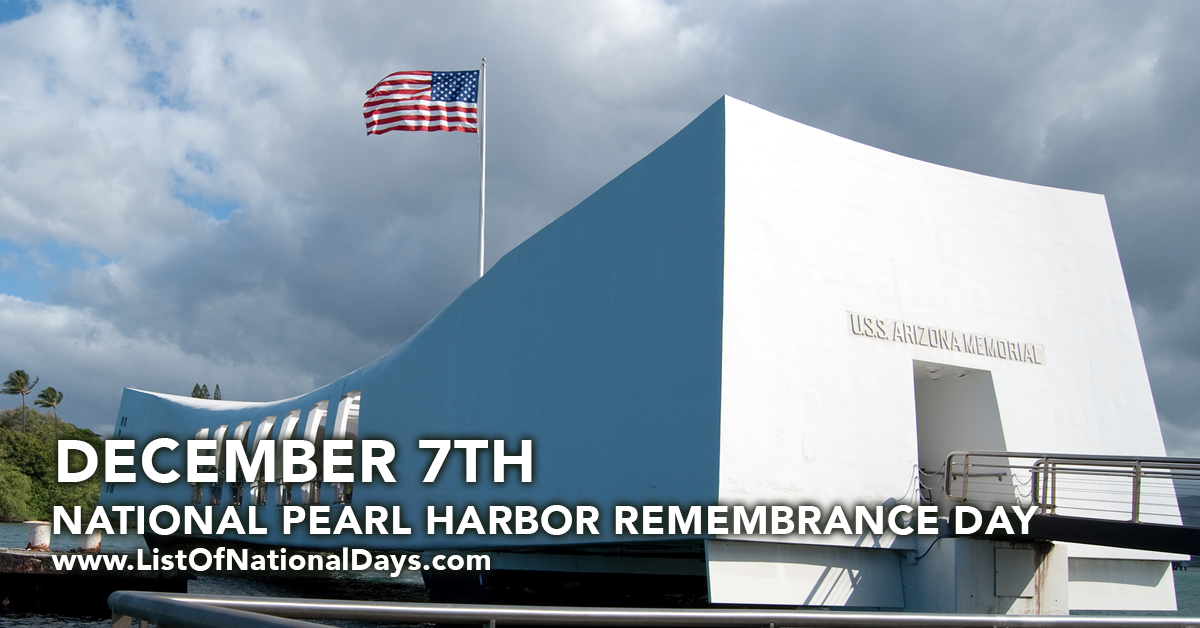National Pearl Harbor Remembrance Day is observed on December 7th each year to honor and remember the lives lost during the Japanese attack on Pearl Harbor in 1941. It is a day to pay tribute to the bravery and sacrifice of the military personnel on Hawaii.
#HASHTAGS
#NationalPearlHarborRemembranceDay
National Pearl Harbor Remembrance Day is celebrated annually on December 7th
| Year | Date | Day |
|---|---|---|
| 2023 | December 7 | Thursday |
| 2024 | December 7 | Saturday |
| 2025 | December 7 | Sunday |
| 2026 | December 7 | Monday |
| 2027 | December 7 | Tuesday |
| 2028 | December 7 | Thursday |
| 2029 | December 7 | Friday |
| 2030 | December 7 | Saturday |
| 2031 | December 7 | Sunday |
| 2032 | December 7 | Tuesday |
| 2033 | December 7 | Wednesday |
| 2034 | December 7 | Thursday |
| 2035 | December 7 | Friday |
